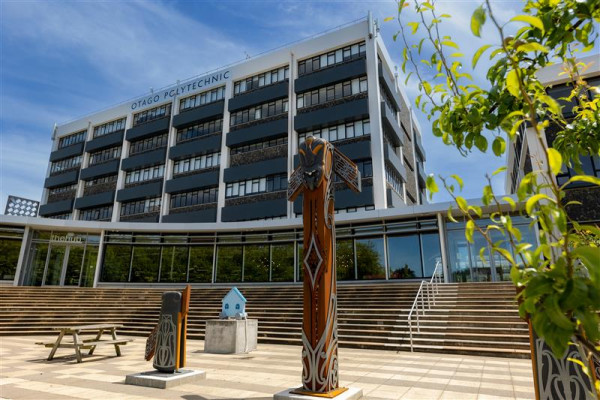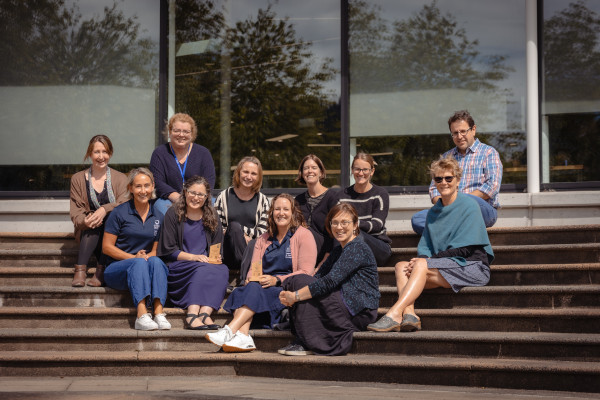- Tūhono home Hoki ki Tūhono
-
- Staff Directory
- Chief Executive Office Auckland International Office Corporate Services Finance Campus Services Functions and Catering Information Systems and Support Marketing, Communications and Engagement Learner Journey Academic Registry International Learner Services Te Punaka Ōwheo
- Learner Experience Academic Excellence Central Campus College of Community Development and Personal Wellbeing College of Engineering, Construction and Living Sciences College of Health College of Work Based Learning Open Education Resource/OERu Research and Postgraduate Studies Te Maru Pumanawa | College of Creative Practice and Enterprise
- Māori Development and Kaitohutohu Office People, Culture & Safety People and Culture Childcare Centre Te Ama Ako | Learning and Teaching Development Wellbeing and Safety Auckland Staff Directory Executive Office Academic Corporate Services Marketing and Business Development Human Resources Campus Quality and Programme Development
-
 Our people make a better world
Our people make a better world
We build the capabilities of individuals, organisations and communities and help them to realise their potential.
Staff Directory
-
- Tools
- Academic Integrity Declaration Form AIC applications dashboard Approved programmes Approved programme fees Centralised assessement repository Chemwatch Course evaluation and surveys CRM applications CRM customer service hub Delegations policy/process Disability and neurodiversity Dynamics 365 (CRM) EBS Ontrack EBS Report Email security personal portal Employment Matters / Solarworkplace / Performance reviews eTaxi eTV
- Financial variance reporting Hidden Disabilities Sunflower programme FCM travel intranet InPlace International entry requirements Knowledgebase articles Learner support dashboards Linkedin Learning Log a job with Marketing Login as an applicant Media consent form Microsoft 365 Moderation App Moodle OP Docs OP Docs - Publishing OP Image Libraries Performance Excellence Portal Pocket Lab (student healthcare) Product Evaluation Panel
- Policy Library Privacy Programme and course design/development Qualtrics XM RDS Remote access support portal Research Database Robertson Library Staff FAQs about graduation Status of Programmes Student intranet (Kāpehu) Study Abroad info for learners Taha Talks (videos for students) Tūhauora I Wellbeing resources Uniprint Vault Webexpenses Auckland tools
-
 Vault
Had an accident or near miss?
Log it here
Vault
Had an accident or near miss?
Log it here
-
- Communities
- Community AI Steering Committee Ally Network EBS Community of Interest EdTech Champions Health & Wellbeing Research Internal Evaluation Neurodiversity Professional Team Professoriate Proud@OP Student Support Website Advisory Group Web Champions Working under the Rainbow Project Learner Capability Trade Training Centre
- Committee Academic Committee Animals@OP Diversity and Equity Doctor of Professional Practice Committee Kaunihera Whakahaere - Leadership Council Internal Evaluation Learning & Teaching Leadership Team Library Committee Mental Health and Wellbeing Advisory Group Otago Polytechnic Board of Directors Pastoral Care Code Committee Programme Approvals Committee Research and Postgraduate Committee Research Ethics Committee Staff Subcommittee
- Think Tanks Mātauraka Our learners achieve educational success Pūtea Our financial success Tākata Our people, our team, our community Tiriti Our active commitment as a Treaty partner Tūroa Our commitment to be a sustainable and responsive organisation
-
 Create a community
Create a community
Do you have a community, committee or project that you'd like represented here?
Communities
-
- About OP
- Keep up to date All news All events All notices All blogs Share your info Create a news article Create an event Create a notice Create a blog
- Community and Partnerships Alumni and friends Education Foundation Operational information Academic calendar 2025 Academic calendar 2026 Current vacancies Dunedin campus map Our policies Topical FAQs
- Who we are About OP Commemorative sites Māori Strategic Framework OP merchandise Our history Our strategic priorities Pasifika Action Plan Pasifika Strategic Framework (2025-2030) Vision and Values Working for us OP job opportunities Wellbeing Calendar Working at OP
-
New Zealand: 0800 762 786
contact us
International: +64 3 477 3014
Understanding health workers' views on addressing the unmet need for family planning in Guadalcanal, Solomon Islands
Author: Sahra Kress
Understanding health workers’ views on addressing the unmet need for family planning in Guadalcanal, Solomon Islands
Sahra Kress
12 February 2021
Abstract
Rationale: This study supports access to family planning based on evidence that impacts of contraceptive use range from improved health to socioeconomic benefits and sustainable development. This study hears from health workers providing essential family planning care to women and their families in Guadalcanal, Solomon Islands. This region was chosen for this study as it has a subnational disparity of highest unmet need for family planning in the Solomon Islands. The aim was to understand health workers’ perspectives on barriers to contraception in this region, and to hear their proposed solutions.
Design: This study was based on an exploratory descriptive research approach using a survey method. In particular, the survey was designed to explore health workers’ perspectives on Long-Acting Reversible Contraception (LARC) in their communities. Fifty-six surveys comprised of 32 open-ended and closed-ended questions were completed and analysed.
Results: Health workers identified multiple structural, social, and service-driven barriers to meeting the contraceptive needs of women in their communities. Structural barriers include gender inequity and religious influence. Barriers that may be more amenable to influence include misinformation and fear about contraceptive side effects; contraceptive stigma; and access to contraceptive training and education for health workers. Health workers expressed eagerness to address the unmet need for contraception in their communities and are a resource that should be prioritised in programmes seeking to expand access to contraception in the Pacific region. Health workers are embedded in their communities and insightful about health service complexities in their settings. They identified solutions including increased access to education and LARC training; increased efforts in raising community awareness and ways of encouraging contraceptive acceptance; and a continued investment in enabling environments- for health workers, and for women.
Conclusions: This study affirms health workers as a key resource in addressing the unmet need for contraception in Guadalcanal, Solomon Islands, and calls for programme and policy solutions informed by their perspectives. The two main priorities they emphasised to help tackle the persistent problem of unmet need for contraception are an increase in their capacity to provide contraceptive implants, and an increase in community education to boost acceptance of family planning care from women and their families.
Keywords: family planning, unmet need, health workers, LARC, Solomon Islands
Sahra Kress's thesis was supervised by George Parker and Tricia Thompson.
License
This thesis is available under a Creative Commons Attribution-NonCommercial licence CC BY-NC 4.0 International.